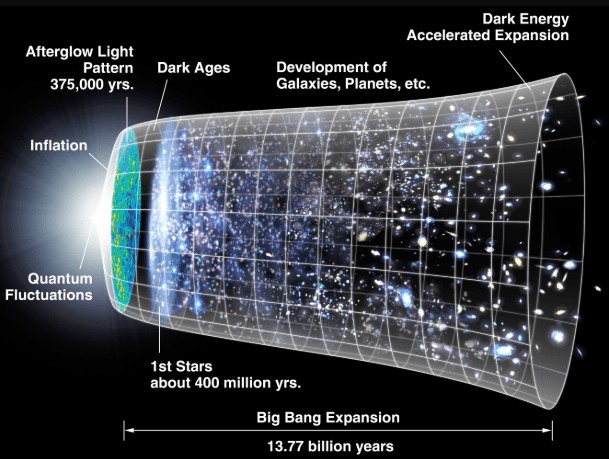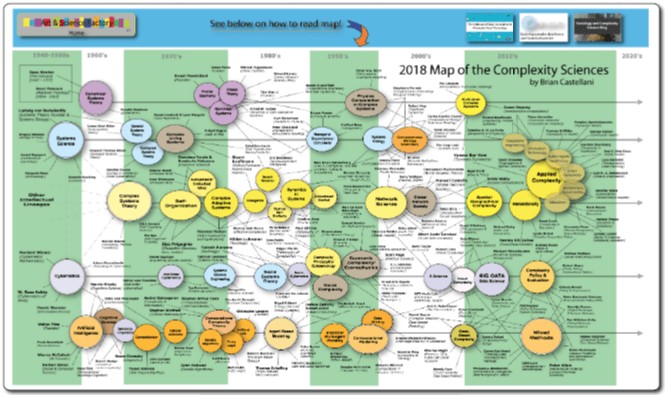You probably think you have a handle on things. Most of us do. We do things like graduate from college, raise children, achieve milestones like buying our first car, or even come back from war zones. These experiences build a person (or not) and we are the summation of these events in our lives.
Most people perceive their existence through this lens – these “macro events” I’ll call them. But there is tremendously (and I do mean tremendously) more going on below the surface.
Take this pen.

Looks simple, right? It’s just a pen.
But let’s do a mental exercise where we explore the nature of the pen – it’s essence. Take a minute or two to think about every aspect of this pen and see what you can come up with.
…seriously, do it.
Ok, now let’s take what you came up with and try to expand it. We’ll do this by simply comparing your perception of the pen with another person’s – mine.
Here’s my one minute stream of thought:
Ok, it’s a pen. What is it made of? Plastic. How do you make plastic? Well, I know plastic’s an organic polymer, but I have no idea how it’s manufactured in industrialized fashion like this. Being organic, I bet it has a lot of carbon in it. Could you compress it into a diamond with sufficient force? There’s metal in it too. I wonder if it’s steel, iron, aluminum, what? Does it have a grade? Do pens need grades of metal or will any metal do? Who figures all this out? Are there pen engineers? What about the history of the “pen trade,” so to speak? How is this pen better than previous pens? How many countless innovations went into making this pen so reliable and easy to use? Is the pen business profitable? What are the economics behind it? Are pens ultimately going to fail as a business due to the computer age? What does that mean for writing in general? Does writing carry more value to society than typing? Is the physical action of writing something we’ll miss?…
See anything you didn’t think of? Of course you do! No one alive thinks exactly the way I do. The same goes for you. Hell, I just realized I didn’t even think of ink! Who does that? I bet someone else thought about ink.
This means there is an absolutely massive amount of information residing within this pen, just waiting to be unlocked. Actually, I’d argue there’s an infinite amount of information in this pen. But not just this pen – all objects everywhere! Given infinite diversity of perspective and time, an infinite amount of information could be derived from any object in the Universe – even something so fundamental as a single electron.
This brings me to my intent – developing a deeper understanding of complexity. How does it present itself in our Universe? What does it mean to us? By understanding complexity as a concept, we might get a better grip on how to control and gain power over it.
But complexity is… complex. I’ve put some thought into that too – why is complexity so complex?
complex: consisting of many different and connected parts.
Complexity is simply more. More things, more connections, more potentialities. What makes complexity complex is the “more” part. There’s only so much “more” we can handle. Why? Because we’re fallible creatures with weak, passively-amalgamated brains that can only deal with a certain number of abstractions before getting overloaded.
In other words, complexity only seems complex because we’re fallible. If we were infallible, perhaps due to a vastly improved mind, then complexity would no longer exist as we know it.
The concept of ”uncertainty” is how we reconcile our fallibility with the complexity of reality. I’ve thought about uncertainty quite a lot. Both in an academic sense and an applied sense when educating my clients about the mechanics of financial markets. This relationship is best described by the following:
Uncertainty = Complexity*Fallibility
- If our fallibility is zero, then our uncertainty is zero
- If complexity is zero, then our uncertainty is zero
- Finally, to deny uncertainty exists is to claim infallibility and/or the absence of complexity
This has real-world applications: Regarding the stock market, I can’t reduce its intrinsic complexity, but I can reduce the investor’s fallibility by training them to watch for their own poor investing behavior (this is called “behavioral finance”). In this manner, I reduce the uncertainty of them achieving their financial goals.
I don’t see why we can’t apply this same logic to the Universe, starting with the Big Bang and mapping it’s evolution from that point: By mapping and studying complexity, we reduce it. And by remaining introspectively disciplined, we reduce our fallibility. Thus, we reduce uncertainty, gaining a measure of reliability in our planned outcomes and predictions.
Make sense?
Of course, I’m not the first person to have these thoughts… not by a long shot:
Complexity sciences are vast and the computer age has made them manageable; expanding our ability to handle and analyze quantities of data that were far beyond our reach previously. Indeed, the future is happening all around us and arm-chair schmucks like myself now have the time and means to tackle these bigger issues, building on the backs of our predecessors in this great web of human knowledge that is the internet.
For example, much of my curiosity about the Universe and what drives it comes from what is depicted below:

If the origin of the Big Bang is on the left, that point can be described as maximum simplicity or minimum complexity for the simple reasoning that everything we know and understand originated from that event (but not really). My goal of “reverse engineering the Universe” is to help further outline the rules of this evolution. The Universe itself is a complex system that gave rise to other complex systems (like our consciousness). If we can understand the rules behind that evolution, we might be able to simulate it (a.k.a. “Science!”).
Similar to how we made the first airplanes by studying the wings of birds, we might create the first artificial minds by studying how the motion of the Universe produced one.
The key is accurately categorizing all of this complexity and discerning the relevant patterns within it. Of course, outlining all of these patterns is beyond my purposes here, but there are some very important types of complexity everyone should know about…
Iteration
iteration: the repetition of a process.
We are miserable at understanding the cumulative impacts of iteration – it might as well be magic to us. This “butterfly effect” is a big reason why some folks have such a hard time understanding how life could have originated from stardust.
In fact, “Chaos Theory” is all about this concept – the idea that extremely tiny changes iterated over vast expanses of time can have huge and often very unexpected outcomes. “Chaos” is never really chaos, mind you. We simply perceive it that way due to our fallibility, as described above. Chaos is just another word for “uncertainty” and we suck at uncertainty, which is why we aim to reduce it.
Large Numbers
Like iteration, large numbers are tough for us to understand without assistance. Whether it’s how much a billion dollar bills would weigh, how long it takes the movement of tectonic plates to create a new ocean, or how many stars are in the night sky, we’re simply not built to intuitively guess these things accurately. So we use tools like math, computers, measuring instruments, etc. to assist us in accurately gauging these answers.
But still we can’t comprehend these figures, even when we hear the correct numerical answers. Can you accurately hold a billion numbers in your mind? Of course you can’t! No one can. Could a computer? You betcha.
Large numbers are a great example of complexity because they’re a perfect representation of the “more” factor we covered above.
Hidden Variables
Because there’s so much out there and because it’s constantly iterating, we inevitably miss things. These things are best described as “hidden variables.”
Much of medical science revolves around uncovering hidden variables: The human body (especially the brain) is massively complex. Understanding the complex relationships between all the moving parts means we have to understand the variables involved. These variables are hidden to us by default. Uncovering them is obviously a huge deal in the medical sciences and actively worked on every day.
Emergence
Emergence is the idea that a system, as a whole, can exhibit behaviors or actions beyond what any individual part is capable of. This is obviously important in studying consciousness: Intuitively, people feel they are special and prefer to think of themselves as more than just a bunch of cells. But that’s what we are – a bunch of cells. Understanding how all of those cells cooperate to create a system capable of consciousness is critical if we want to understand how to repair, maintain, extend, or even replicate our own consciousnesses. But that’s a tough nut to crack, primarily due to the brain’s enormous complexity.
Physical Uncertainty
To further complicate the issue, uncertainty isn’t just a figurative concept, it’s also a literal one. As we covered in the last premise, our Universe has shown itself to be fundamentally uncertain. This is due to the “Uncertainty Principle” we covered.
What this means is no matter how effective we are, no matter how smart or well-constructed the mind, uncertainty physically cannot be removed from any prediction made. It is literally a physical impossibility.
Thus…
Premise Five: The Universe is complex because we’re fallible. It’s impossible to completely eliminate fallibility because of premise four. Therefore, a minimum uncertainty will always exist.
And we’ve got a long, long, way to go before we reach that minimum.
